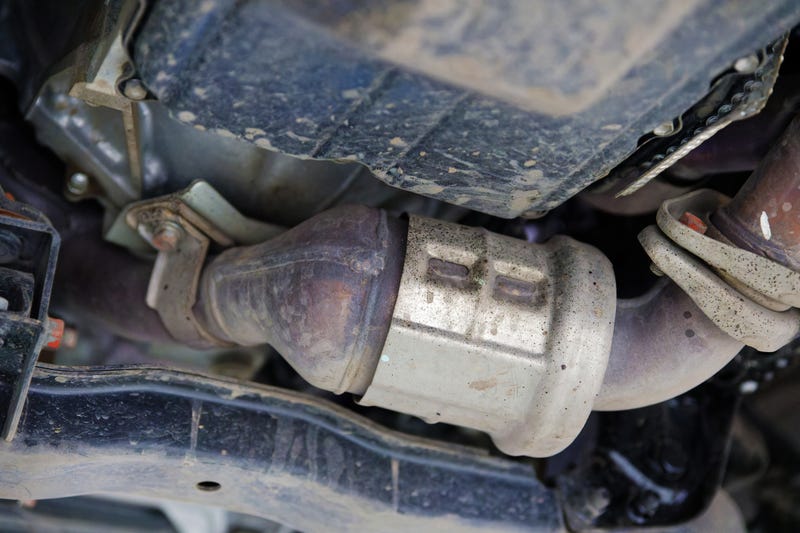
PHILADELPHIA (KYW Newsradio) — Catalytic converter thefts have become a national epidemic. A Philadelphia-based Democrat in the Pennsylvania House wants to crack down on these thefts, which have jumped significantly in the past few years.
Prime sponsor Mary Isaacson told the House Consumer Protection, Technology and Utilities Committee earlier this week that victims of catalytic converter thefts are not only hit with a bill — often for thousands of dollars — but also, because of ongoing supply chain issues, it can take weeks to get their cars fixed.
“Getting the catalytic converter — even after it’s still getting the replacement — it becomes difficult, and now you’re out of your own,” she said. “It’s almost like another theft.”
Isaacson’s bill would order scrap metal yards to get the make, model and vehicle identification number (VIN) of the car that the catalytic converter was removed from; require a photo of the seller and the catalytic converter; and withhold payment for 48 hours.
Bucks County Assistant District Attorney Edward Furman said it’s not hard to spot a stolen catalytic converter.
“A mechanic shop will often do clean, straight cuts as when they want a clean and easy manner to attach a new converter. Catalytic converter thieves don’t care about damaging the vehicle, so they’ll have quick, jagged cuts,” he said.
Catalytic converter thefts rose about 718% between 2020 and 2022 — there were 383 auto insurance claims in 2020 compared to 2,757 in 2022.
Furman attributes the jump to the fact that these crimes are quick, easy and very profitable. Someone could hack off a catalytic converter in minutes with a handsaw, and because of the high price of precious metals inside, they’re a popular target.
“The quick buck that thieves can get from catalytic converters have made them brazen and dangerous,” he testified at the committee hearing. “[The legislation] will help us target the bad actors, significantly reducing the sales of the converters, and simply making the theft of the converters less lucrative.”
The Institute of Scrap Recycling Industries, an advocacy nonprofit, opposes the legislation, saying it puts a higher standard on scrap metal businesses but doesn’t do anything to stop online transactions.

